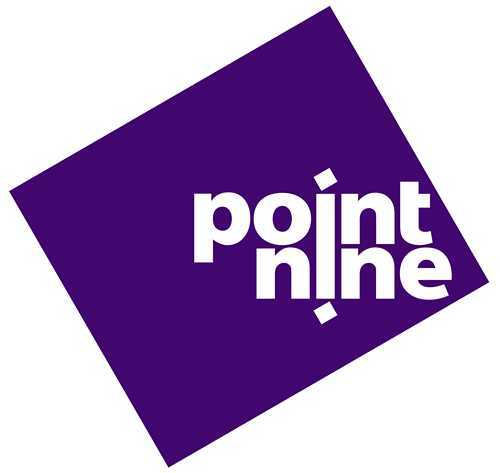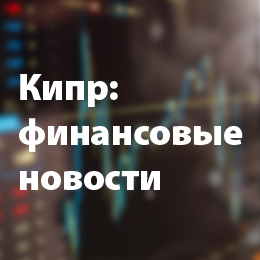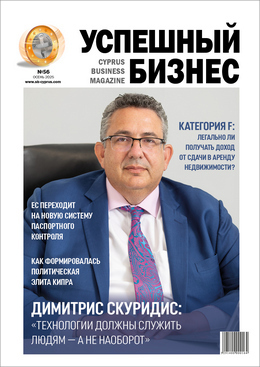 Successful Business talks to Point Nine, a company that focuses on providing trade and transaction reporting services to legal entities across the globe. With offices in Cyprus and London, Point Nine collaborates with both buy-side and sell-side financial firms, service providers, and corporations to help them ensure high quality and accurate reporting to remain compliant. We speak with Andreas Roussos (pictured), Theo Mallas, and Christina Barbash about the today and tomorrow of Regulatory Technology, known as RegTech, and the challenges and solutions in a complex environment of multi-reporting to local and EU regulators.
Successful Business talks to Point Nine, a company that focuses on providing trade and transaction reporting services to legal entities across the globe. With offices in Cyprus and London, Point Nine collaborates with both buy-side and sell-side financial firms, service providers, and corporations to help them ensure high quality and accurate reporting to remain compliant. We speak with Andreas Roussos (pictured), Theo Mallas, and Christina Barbash about the today and tomorrow of Regulatory Technology, known as RegTech, and the challenges and solutions in a complex environment of multi-reporting to local and EU regulators.
The compliance burden on companies increases every year. What are the fields of compliance that could be managed by special software instead of human operators? Are there any complicated, timeconsuming processes that could be easily replaced by RegTech?
There is no single reporting regime that can be done only by humans. You need at least a good knowledge of Excel, but the problem is multilayered. Let me introduce the market outlook. The compliance market is huge and involves pharmaceutical companies that work on vaccines, companies that manufacture arms, explosives, airplanes. In these cases, we have healthcare regulations, regulations in security. But let’s focus on financial services.
There have been many examples in the financial service sector when regulators tried to figure out what was happening exactly at any given time. The year of 2008 is the best example of all. During the crisis, several banks were on the brink of collapse. The regulators, that is, the governments, had to make a choice – whether to use people’s money to save those banks. However, no one considered what was going to happen if the bank collapsed. They had no idea about outstanding trades and if there was going to be a systemic risk. At the same time, financial markets were never transparent enough for an average person to invest. We always had a problem with transparency, with regulators getting accurate and timely data to better understand and control the environment.
Besides all that, there were many cases of fraud. We also saw problems with clearly identifying the source and destination of incoming and outgoing funds. Whether you are one of the biggest banks in the world or a small broker in Cyprus, more or less you have to report the same data. The number one problem organisations have is internal, where they need to answer a number of questions. Do we have all necessary data? Where do we store these data? Can we correctly interpret the data according to all the requirements?
There is also the external part. You need to send all those data in a correct format to various regulators. We live in a free-trade world, where entities can be established all over Europe, for example. The problem with Europe is that you have European regulators and local regulators. Usually, they don’t have the same goals; they should, but they don’t.
Companies that are in the financial services have approximately 16,000 data fields they need to complete. Much reporting relies not only on the company itself but also on the entities this company trades with. You also have reporting that entails accounting principles, taxation, money laundering, monitoring of trading transactions, and the list goes on. That’s why we witness the rise of RegTech, which derived from FinTech.
Companies should also work on understanding internal data completely. It doesn’t really matter how good your technology is, if the input of data is inaccurate. In that case, the output is inaccurate as well. Take simple data entering in Excel, for example. One may be excellent in Excel, but if wrong data are inserted, the calculations will be wrong.
We live in a complex environment; it is essential for the regulators to be able to tell average people that it is safe to put their money in pension funds, invest in a stock exchange. People need to know that their money is safe and no one is going to deceive them. Are we close to that? No. It is a relatively new market, the institutions have had their own data and internal software that was never built to carry the reporting in these volumes. We have a regulatory reporting business to become the future.
You have mentioned one very important aspect, that technological progress should be seen not only from the company’s position but also from the government's. What if reporting is being done, but there is not enough capacity to analyse all those data?
That’s also one of the main issues. Two years ago, Mark Carney, a former governor of the Bank of England gave a speech saying, if I recall correctly, that £8 billion pounds in the U.K. banking sector was lost just because the reporting was not efficient. By the time regulators receive all that vast amount of data, process and analyse it, make their partial conclusion, they have to ask for more data.
Regulations impose on entities the obligations to submit reports continuously: daily, monthly, quarterly, semiannually, annually. The regulated entities in any sector need to make these data available and regulators should have access to inspect them. The daily checks or prescheduled checks don’t allow them to be flexible and this is the biggest problem. There are the data stored and protected within the company; the data needed by third parties; and the data from service providers. Moreover, for the same entity, you can have 2-3 regulators. Basically, you have the same data stored for years in several different infrastructures which is unproductive, since you asked.
Would you say that the future for Fintech is to give limited access to the regulator so they can access companies if necessary?
If you ask me, it would make everyone’s life easier and it would be more efficient. The problem is that this industry is changing too fast. It is a very difficult task to achieve unless there is a coordinated effort from all stakeholders. A typical entity, a bank, might have data in 20-30 different internal solutions, databases, software. Such change requires planning and time to be put in effect.
What is your outlook for 2021? What are the inevitable changes to be implemented in the financial regulation industry?
The pandemic has changed everything. If you are in the financial sector, if you are a regulated entity, you have people that need to work under specific rules, in the specific environment. Now all these people work from home. I think the pandemic will shift everything towards work-fromhome; I see more of a “bring your own device” trend, and we also need to see adjustments in regulations. We will not go back to how we were, even with vaccines. I expect adjustments in the regulations, but I believe the changes will take place slowly.
HOW THE CYPRIOT-BASED FINTECH FIRM, POINT NINE, GREW IN 2020 AMIDST THE PANDEMIC AND WHAT WE CAN LEARN FROM THEM

Andreas Roussos, Partner, Christina Barbash, Business Development Manager, Theo Mallas, Head of Marketing & Corporate Culture. Photo: Successful Business
1. Tell us about Point Nine.
In its essence, Point Nine is a data processing and management firm. Our proprietary solution is designed to collect information from different sources, process, and create a report that contains all information needed and presented in the format demanded by the European Securities and Markets Authorities and National Competency Authorities. In sim Corporate Culture - ple terms, we help financial institutions remain compliant and transparent to the law they belong to. Aside from the quality of our service/ product, Point Nine aims to become a driving force of market change and reform. Our team is our strength. We are proud of our team’s industry knowledge and are committed to keeping up with the latest changes in regulations. We are smart, fun, and driven, however, we also take our community involvement and responsibility seriously.
2. Has Point Nine been affected by the Pandemic?
We are fortunate to have not been affected by the pandemic performancewise. In fact, we’ve seen a double-digit growth in terms of client acquisition to date and nearly doubled our team in 2020 amidst the pandemic.
3. That is an impressive growth considering the circumstances. What were your actions leading to such growth?
Well, at times of chaos and uncertainty, it is important to safeguard the business and focus on ethically growing it under those circumstances one has no control over. In our case, as a tech company and cloud-based, we’ve always had a flexible approach to working remotely as we have team members across Europe, and our line of work requires little to zero physical interaction, therefore we were not affected by the measures taken by the local government. However, we did have to comfort our clients that their data were protected, and the workload sustained as usual.
In regard to growing our clientele, we revisited our roots, our core values and the value we bring to our clients. With such focus, we turned to digital communication platforms with an updated messaging focusing on the value we bring to customers and kept the messages targeted.
This approach helped us look internally and focus on not only supporting the team’s safety and the safety of their loved ones but also maintaining their overall well-being. We established weekly group calls merely for social engagement and chats not related to work while the local team arranged off-site activities such as dinners and other bonding experiences offering each other support.
4. What distinguishes Point Nine from its competitors?
What makes Point Nine stand out from its competitors is our ability to access data from various systems, including customers’ in-house solutions. Our architecture has an automated way of fetching, receiving, or submitting enriched data while helping the increased accuracy testing, performing advanced regulatory reconciliations, testing reference data, and having a proper control framework.
 Regulators demand that financial firms, service providers, and corporations submit timely and accurate data to trade repositories, approved reporting mechanisms and national competent authorities.
Regulators demand that financial firms, service providers, and corporations submit timely and accurate data to trade repositories, approved reporting mechanisms and national competent authorities.
Point Nine in-house technology is a scalable regulatory solution utilised by many firms: Point Nine have processed and reported more than 4.5 billion reports. The company has a team of industry experts that specialises in regulatory reporting, equipped with proprietary cloud-based technology.
Point Nine technology is designed to help firms successfully meet their regulatory reporting requirements and remain compliant with: EMIR, MiFID ll, MiFIR, SFTR, FinfraG, ASIC, MAS.
KEY LEARNINGS:
Prioritise authentic, transparent communication with clients and employees.
Go digital with a fine-tuned message.
Reassure your clients.






